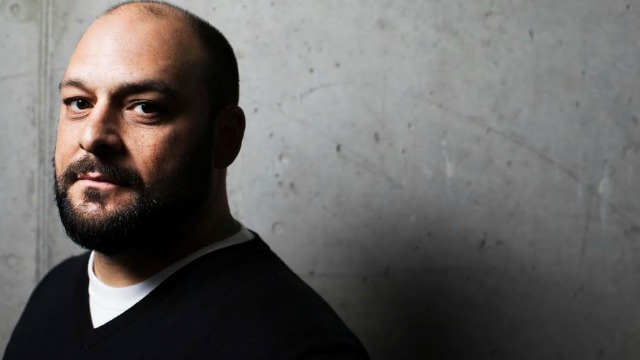The Trump Administration Just Wiped Out Funds For A Chicago Group That Fights Neo-Nazism
By Stephen Gossett in News on Jun 24, 2017 5:01AM

Christian Picciolini
The Trump administration announced on Friday that it had eliminated a federal grant for a Chicago-based organization that works to counteract white extremism and neo-Nazism.
Life After Hate was supposed to receive a $400,000 grant as part of the Countering Violent Extremism initiative. The Department of Homeland Security issued the initial grant announcement in January. But that was under the Obama administration’s tenure; and the funds never materialized after the presidential transition. On Friday, DHS announced a new list of grant recipients, and Life After Hate was nowhere to be found.
Life After Hate, which was founded in Chicago in 2011, works to educate and de-radicalize people away from far-right, white supremacist groups around the country. The organization was founded by Christian Picciolini, a reformed neo-Nazi skinhead from Blue Island and current West Loop resident.
“This sends a message loud and clear by the new administration that they do not support or believe the idea that white extremism is a domestic threat, when the facts clearly prove otherwise," Picciolini told Chicagoist via email. "Eliminating the only group that has a proven track record of disengaging white extremists, especially during a massive spike in violent hate crime activity across the nation is a slippery slope.”
As Picciolini stressed in an interview with Chicagoist in November, white nationalists are responsible for more deaths in America since 9/11 than any foreign or domestic group combined.
Reuters reported in February that the Trump administration was seeking to redesign the Countering Violent Extremism program to shift its focus squarely against Islamist extremism. Representatives from DHS did not immediately return a request for comment from Chicagoist. But in speaking with Mother Jones, a spokesperson denied that the department had turned its attention squarely on Islamic radicalization with Friday’s announcement.
This most recent list of recipients does not include any groups that expressly target far-right hate groups. The latest awardees in the CVE’s Managing Interventions category—under which Life After Hate was previously selected—includes the Alameda County Sheriff’s Office, the City of Los Angeles Mayor’s Office of Public Safety, and the Las Vegas Metropolitan Police Department.
DHS reportedly said that factors such as whether a group was “viable to continue after the award period” and whether an organization had a demonstrated history of fighting violent extremism were weighed in how grants were distributed.
But according to Picciolini, the grant criteria were "completely revised without any notice" and not communicated to Life After Hate.
“I would like to know what the new criteria is and how we were scored,” he said. “It appears that Life After Hate was the only original awardee (aside from those that refused the grant) that was dropped. I was also told [Friday] morning that because we only focused on helping people disengage from one type of violent extremism -- white supremacist extremism -- our focus was considered not broad enough. This, after years of the CVE program only focusing on what the new administration is now calling "radical islamic terror," is a bit of a farce actually.”
In a bitter irony, Life After Hate had actually intended to use its grant award in part to combat IS-inspired extremism as well, by setting up an online intervention program that directed half its efforts to that focus, according to Picciolini.
Picciolini said he doesn't imagine that the grant loss will be an existential threat for the organization, but it will diminish its reach during a critical moment. "This only impedes our ability to scale at a time when we are inundated with requests to help," he said. "My hope is that our inability to scale on schedule will not force us to miss an opportunity to off-ramp the next Dylann Roof."
The number of requests received by Life After Hate from people looking to de-radicalize—or get help for others in need of reformation—has shot up 20-fold since Donald Trump’s election.
Update:
DHS spokesperson Lucia Martinez told Chicagoist in an email:
"After the initial announcement of Countering Violent Extremism (CVE) Grant Program awardees, DHS utilized its discretion to consider other factors and information when reviewing each applicant. The Department considered whether applicants for CVE awards would partner with law enforcement, had a strong basis of prior experience in countering violent extremism, had a history of prior efforts to implement prevention programs targeting violent extremism, and were viable to continue after the end of the award period. These additional priorities were applied to the existing pool of applicants. Top scoring applications that were consistent with these priorities remained as awardees, while others did not."